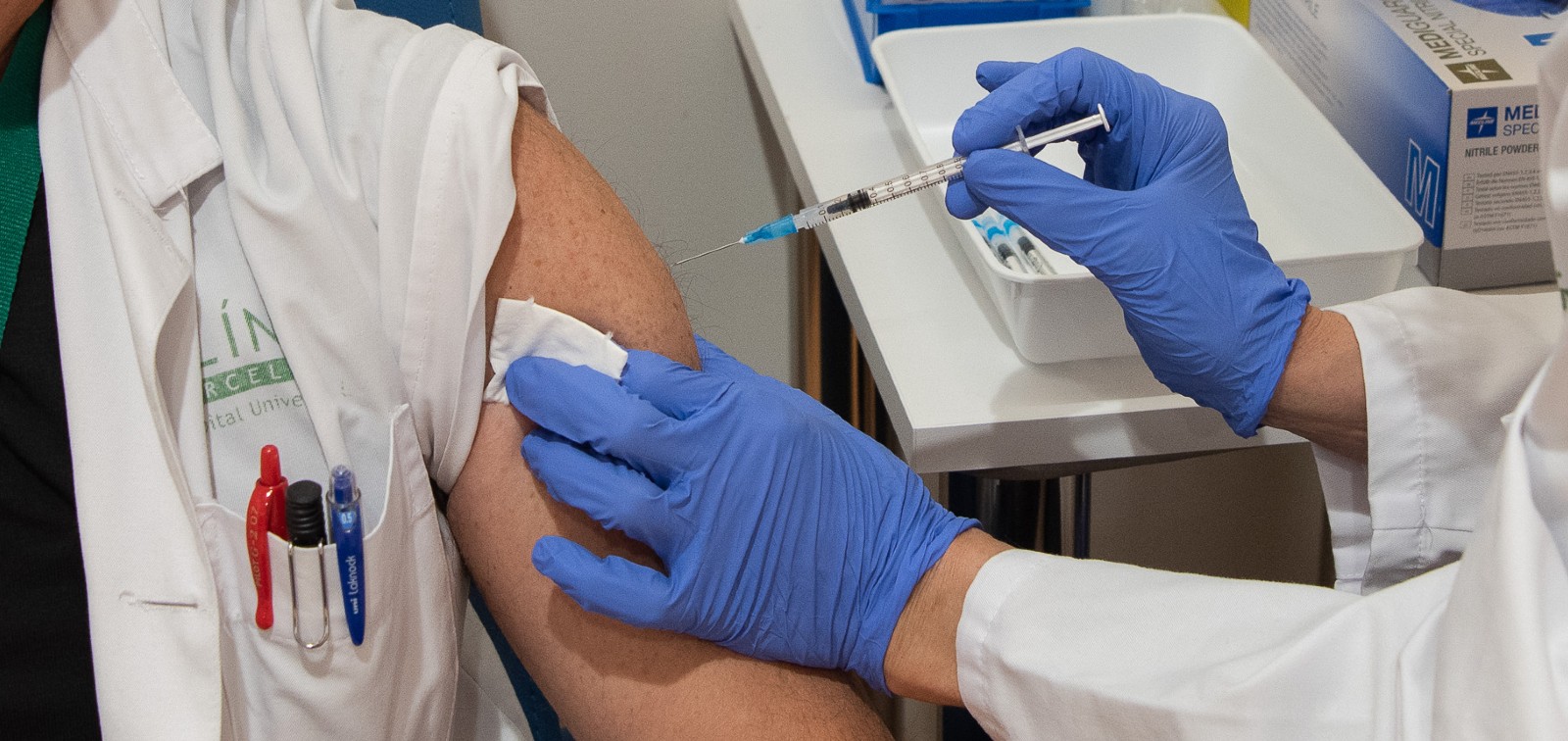Several Factors Affect an Individual’s Early Response to COVID-19 Vaccination
Individuals who were previously infected by SARS-CoV-2 and had symptoms develop higher levels of neutralising antibodies upon vaccination, while individuals who smoke or have chronic conditions make less antibodies, shows a new study
19.01.2022
The antibody response of an individual upon COVID-19 vaccination depends on the vaccine received, the number of doses, previous history of SARS-CoV-2 infection and symptoms, as well as his or her life-style habits and health condition, according to a study led by the Barcelona Institute for Global Health (ISGlobal) and carried out with support from the Daniel Bravo Andreu Private Foundation (FPDBA) The findings also suggest that the Moderna vaccine may be a better choice for those expected to respond worse to vaccination and in case of variants that escape immunity such as Omicron.
Clinical trials for the mRNA vaccines by Pfizer-BioNTech and Moderna were conducted in individuals who had not been previously diagnosed with COVID-19, and at a time when the different variants of concern were not yet circulating. “We know that vaccine responses may be affected by several factors, such as previous exposure to the virus, life-style, or age, and that this could in turn determine the level of protection against emerging viral variants,” says Carlota Dobaño, senior author of the study together with Alberto García-Basteiro. Since the beginning of the pandemic, she and her colleagues have been closely following a cohort of healthcare workers from the Hospital Clinic of Barcelona. “The advantage of our cohort is that we have detailed data on their demographics, life-style and clinical data, including their antibody responses to SARS-Cov-2 and the common cold coronaviruses,” says García Basteiro.
In this study, the research team investigated the impact of previous SARS-CoV-2 infections as well as other factors such as age, health status and smoking habits on the vaccine response, more precisely, on the type and levels of antibodies produced in response to vaccination with the Pfizer-BioNTech or the Moderna vaccines. They measured IgA, IgG and IgM levels against SARS-CoV-2 Spike from the original variant and from the Alpha, Beta and Gamma variants, in a cohort of 578 healthcare workers.
They found that vaccination induced robust levels of IgA and IgG antibodies against Spike from all variants, although the response was quite heterogenous. Neutralizing antibodies were higher in individuals who had been previously infected (particularly if they developed symptoms), as well as in those who received the Moderna vaccine and those who had more adverse effects upon vaccination. In contrast, smoking and chronic diseases were associated with lower neutralization capacity and lower antibody levels. Age and sex were not significantly associated with IgG levels in the health care workers of the study. Among those fully vaccinated, 6% were infected within the following 189 days. Antibodies were detected for up to one year in 90% of individuals who were infected but not vaccinated. No reinfections were documented in this group, although they cannot be discarded.
“Our data confirm that a single-dose in previously infected and healthy individuals may suffice as primary vaccination,” says Gemma Moncunill, first author of the study. “However, our findings also suggest that a second dose may be necessary in those individuals who were asymptomatic, smoke or have chronic diseases,” she adds. Furthermore, a full schedule may be relevant for maintaining responses over time and to maintain activity against new variants of concern, say the authors. In addition, given its higher immunogenicity, the Moderna vaccine would be beneficial for those expected to respond worse to vaccination and in face of variants that escape immunity such as Omicron.
The study also received support from EIT-Health.
Reference:
Gemma Moncunill, Ruth Aguilar, Marta Ribes et al. Determinants of early antibody responses to COVID-19 mRNA vaccines in a cohort of exposed and naïve healthcare workers. EBioMedicine 2022;75: 103805. https://doi.org/10.1016/j.ebiom.2021.103805



